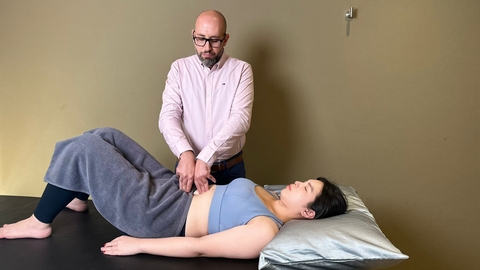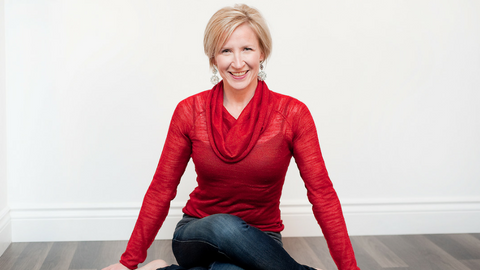Embodia Academy
The course you are trying to fetch does not exist
Featured courses

Assessing Psychosocial Factors for Chronic Pain Rehabilitation
Marc Aureli Piqué Batalla
CA$175.00
Get for Free

Physiotherapists and a Palliative Approach to Care
Canadian Physiotherapy Association, Oncology Division, Seniors' Health Division
CA$20.00

An Introduction to Embodia for Pelvic Health Pros
Embodia Team, Maggie Bergeron
Free

Assessing & Treating Dancers and Artistic Athletes - Level 1
Geneviève Renaud, Dinah Hampson, Pivot Dancer
CA$599.00

Hybrid Rehabilitation in Lung Transplantation
Canadian Physiotherapy Association, Cardiorespiratory Division
CA$40.00
Get for CA$799.00

The Performer’s Pelvis: Managing Pelvic Floor Dysfunction in Dancers and Artistic Athletes
Pivot Dancer, Brooke R. Winder
CA$899.00
‹ Scroll for more ›
Special for Embodia Members View all
Get for Free

Paediatric Pelvic Health Strategies for Neurodiverse and Neurotypical Children
Shelley Mannell, Julie Wiebe
CA$25.00
Coming Soon
Get for Free

Exercise Prescription Overhaul for MSK Pain
Carolyn Vandyken, Cory Blickenstaff, Teresa Waser
CA$19.99
‹ Scroll for more ›
Coming Soon View all
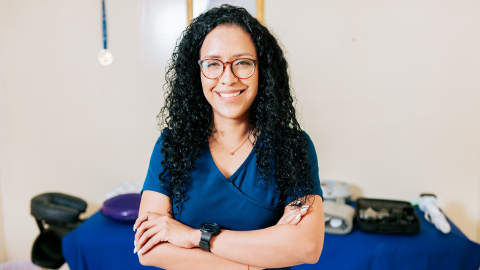
Advanced Practice Physiotherapy: Bridging Evidence, Experiences, and the Future of MSK Care in Canada
Orthopaedic Division, Canadian Physiotherapy Association
CA$20.00
Coming Soon
Get for Free

Aquatic Therapy: Research, Practice, and Lifelong Benefits
Alison Bonnyman
CA$20.00
Coming Soon
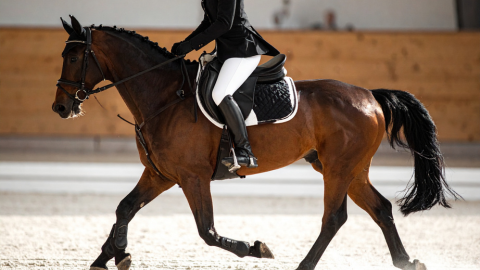
Pilates for the Equestrian Population
Jessica Bergevin
CA$65.00
Coming Soon
Get for Free

Paediatric Pelvic Health Strategies for Neurodiverse and Neurotypical Children
Shelley Mannell, Julie Wiebe
CA$25.00
Coming Soon
Get for Free

Diastasis, Doming & Dread: Cutting Through the Noise in Postpartum Care
Antony Lo (he/his)
CA$25.00
Coming Soon
Get for Free

Treating Sexual Dysfunction in the Post-Prostatectomy Population
Dr. Susie Gronski
CA$20.00
Coming Soon
‹ Scroll for more ›

Sensory-Motor Dysregulation - An Effective Target for Persistent Pain
Carolyn Vandyken, Reframe Rehab
CA$199.00

Evidence-Informed Practices for Individualized Prescription of Ankle-Foot Orthoses
Dr. Kyra Kane (she/her)
CA$75.00

Resource Package - PhysioYoga and the Pelvic Floor
Shelly Prosko
CA$199.99

Motivational Interviewing, CBT, and ACT for Treating Pain
Pelvic Health Solutions, Alison Sim
CA$199.99

Bridging the Gap Between Pelvic Health & Sports Medicine in Hip Arthroscopy Rehabilitation
Dr. Ginger Garner
CA$605.00

Biopsychosocial Reframed - A Model for Treating Pain
Carolyn Vandyken, Reframe Rehab
Part of a bundle

Pudendal Neuralgia and Other Intrapelvic Causes of Neuropathic Pain
Pelvic Health Solutions, Dr. Nucelio Lemos
CA$30.00

External Approaches to Pelvic Health: Education, Exercise, Empowerment
Jenny Telfer-Crum, Ashley Burr
CA$600.00
Get for CA$149.00

APTEI: Shoulder Sensitivity & Contracture Capsulitis
Bahram Jam (he/him)
CA$199.00

Let’s Talk About Sex - Addressing Sexual Function With Your Patients
Pelvic Health Solutions, Karen Brandon
CA$399.99

Kundalini Yoga for the Brain, Memory and During Pregnancy
Ellyn Stanek Hutton
CA$39.00 CA$79.00

APTEI: Temporomandibular Joint (TMJ) Management
Bahram Jam (he/him)
CA$149.00

Introductory Pelvic Health Care for Trans and Gender Diverse People
Pelvic Health Solutions, Céleste Corkery
CA$179.00
Get for CA$799.00

The Performer’s Pelvis: Managing Pelvic Floor Dysfunction in Dancers and Artistic Athletes
Pivot Dancer, Brooke R. Winder
CA$899.00
Get for CA$249.00

The Eclectic Approach to Temporomandibular Management
Dr. Erson Religioso III
CA$349.00

Managing Mechanical LBP and PGP - Telerehabilitation Friendly
Carolyn Vandyken
CA$249.00
Get for CA$149.00

Resource Package - Yin Yoga for the Hips, Pelvis and Low Back
Carolyn Vandyken, Amber Morphy
CA$199.00

Assessing & Treating Dancers and Artistic Athletes - Level 1
Geneviève Renaud, Dinah Hampson, Pivot Dancer
CA$599.00

Resource Package - Qi Gong for Global Remapping
Carolyn Vandyken
CA$99.00

Resource Package - Novel Exercises for a Sensitive Nervous System
Carolyn Vandyken
CA$199.00

Reframe Pelvic Girdle Pain: A 21st Century Approach
Reframe Rehab, Dr. Sinéad Dufour
CA$255.00

Trauma-Sensitive Practice
Canadian Physiotherapy Association
CA$25.00

DIASTASIS - Current Concepts for Effective Assessment and Management
Antony Lo (he/his)
CA$45.00

Diastasis Rectus Abdominis & The Postpartum Core
Munira Hudani
CA$647.00

Navigating the Pelvic Pain Client in a Telerehab World
Dr. Juan Michelle Martin
CA$29.99

Persistent Genital Arousal Disorder
Pelvic Health Solutions
CA$30.00

Trousse de Ressources - Qi Gong
Carolyn Vandyken
CA$99.00

Core Confidence for Pelvic Health Physiotherapists
Julia Di Paolo
CA$97.00

Resource Package - Pelvic Health Level 1 Audio
Carolyn Vandyken
CA$29.99

Sex & Pain Postpartum for Physiotherapists
Pelvic Health Solutions, Tynan Rhea
CA$30.00

Clinical Pilates with a Pelvic Health Perspective
Jessica Bergevin, Canadian Physiotherapy Association, Pelvic and Reproductive Health Division
CA$35.00

Five Things I've Learned About Assessing and Treating Vulvodynia
Pelvic Health Solutions, Yonah Krakowsky
CA$30.00

Compassion in Pain Care
Shelly Prosko, Neil Pearson, Marlysa Sullivan
CA$49.99

Yoga When Pain Persists
Neil Pearson
CA$39.00 CA$79.00

Stop Hurting Women With Exercise Part 1
Antony Lo (he/his)
CA$49.99

Gastrointestinal Disorders and The Pelvic Floor
Dr. Susan Clinton
CA$249.00

Ask an Expert: Practical Strategies for Tendon and Hip-Related Orthopaedic Pain
Canadian Physiotherapy Association, Orthopaedic Division
CA$20.00
Coming Soon
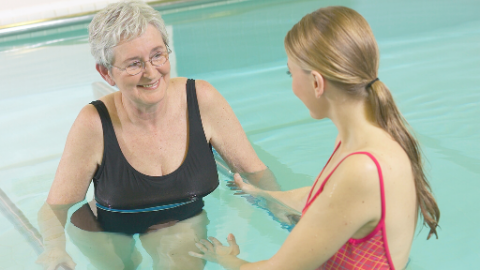
Foundational Aquatic Therapy
Alison Bonnyman
CA$20.00
Coming Soon
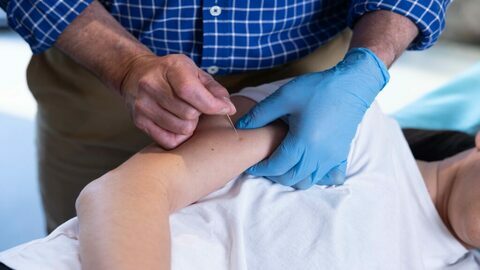
Global Standards in Dry Needling: Why International Dry Needling Education & Training Advisory Group (IDNETAG) Matters
Canadian Physiotherapy Association, Acupuncture and Dry Needling Division
CA$10.00
Coming Soon
Get for CA$15.00

Building Rapport and Creating the Right Environment for Children with Neurodivergence
Canadian Physiotherapy Association, Paediatric Division of the CPA
CA$25.00
Coming Soon






































